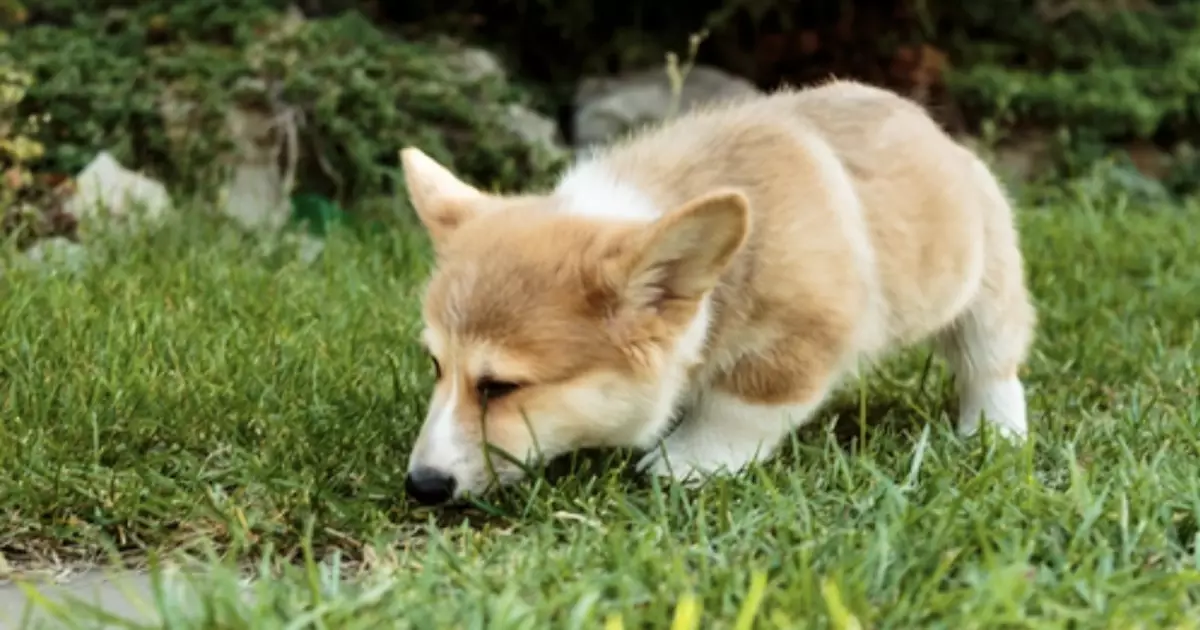When observing our canine companions, it’s not uncommon to spot them indulging in a patch of grass. This peculiar behavior raises eyebrows and can cause alarm among dog owners. However, examining the underlying reasons for why dogs eat grass reveals a fascinating mix of instinctual tendencies, nutritional needs, and even emotional factors. Understanding these motivations can help alleviate concerns and provide insight into a dog’s health.
At the core of this grass-consuming behavior lies an ancestral instinct. Dogs, whether domesticated or wild, have evolved from creatures such as wolves that had diets rich in diversity. In the wild, these ancestors consumed a range of foods, including the occasional plant matter when feasting on their prey. This instinct to forage remains with modern dogs, prompting them to nibble on greenery even when their meals are provided at home. Essentially, grass-eating may be a manifestation of an ingrained habit, not necessarily a dietary need.
One of the more compelling explanations for a dog’s adeptness at munching grass is the quest for fiber. Just like humans require dietary fiber for smooth digestion, dogs also benefit from a balanced intake of this essential component. For dogs whose regular diets lack ample fiber, instinctual behavior might lead them to seek out grass as a natural supplement. The act of eating grass may serve as a self-regulating mechanism, encouraging digestive health and potentially alleviating issues like constipation.
In conjunction with the fiber aspect, grass may have properties that act as a natural laxative. Dogs experiencing gastrointestinal discomfort may gravitate toward grass in hopes of inducing a bowel movement. While there’s no certainty that grass will provide the relief they seek, the natural instinct to alleviate discomfort can push them to consume it.
Just as humans can struggle with feelings of boredom and anxiety, dogs are also susceptible to such emotions. When dogs are left alone for extended periods or lack the requisite physical and mental stimulation, they may resort to unconventional behaviors, including eating grass. This behavior can serve as a means of self-soothing or entertainment. Owners of active breeds may find it particularly beneficial to enrich their dog’s routine with more interactive playtime and engaging toys to help minimize these types of behaviors.
Dogs, especially in their formative years, have an innate curiosity about their surroundings. Chewing on grass can be part of how younger dogs explore the world around them. In many ways, it’s akin to a child putting objects in their mouth to learn and discover. For puppies, the act of grass-eating is usually harmless and serves as a natural part of their development.
Social creatures by nature, dogs can also mimic behaviors exhibited by other animals. In multi-pet households or environments where dogs observe grazing animals, they may adopt similar habits. This learned behavior is generally harmless and can manifest as a fleeting phase, rather than a long-standing issue.
There’s also the straightforward possibility that some dogs simply enjoy the taste or texture of grass. Just like humans, dogs have individual preferences when it comes to sensory experiences. The cool sensation of fresh grass can provide a delightful chewing experience, similar to how they might enjoy certain toys or treats. For some dogs, eating grass may simply be about indulging their senses.
Another dimension to consider is hydration. During hot weather or following exercise, dogs may turn to grass in search of supplemental moisture. Grass can contain water, and as dogs seek to hydrate themselves, the act of consuming it might fulfill a basic need. While grass should never replace a healthy source of water, such behavior can provide insight into how your dog manages its hydration levels.
In more concerning cases, frequent grass-eating might signal a condition known as pica, where animals consume non-food items. Should this behavior appear excessive, it may be necessary to consult a veterinarian to rule out underlying health issues or dietary imbalances. The key here is to monitor your dog’s habits and recognize any shifts that might necessitate professional advice.
Dogs eat grass for a variety of reasons that range from instinctual behavior to nutritional needs, emotional states, and sensory exploration. Generally, this behavior isn’t cause for alarm, especially if it remains occasional and doesn’t lead to adverse health effects. However, attentive owners should remain alert to changes in their dog’s grass-eating habits and associated symptoms like vomiting or lethargy, indicating a potential health concern. Ultimately, understanding why dogs are drawn to grass can enrich our appreciation for their complex behaviors, strengthening the bond between pet and owner.

